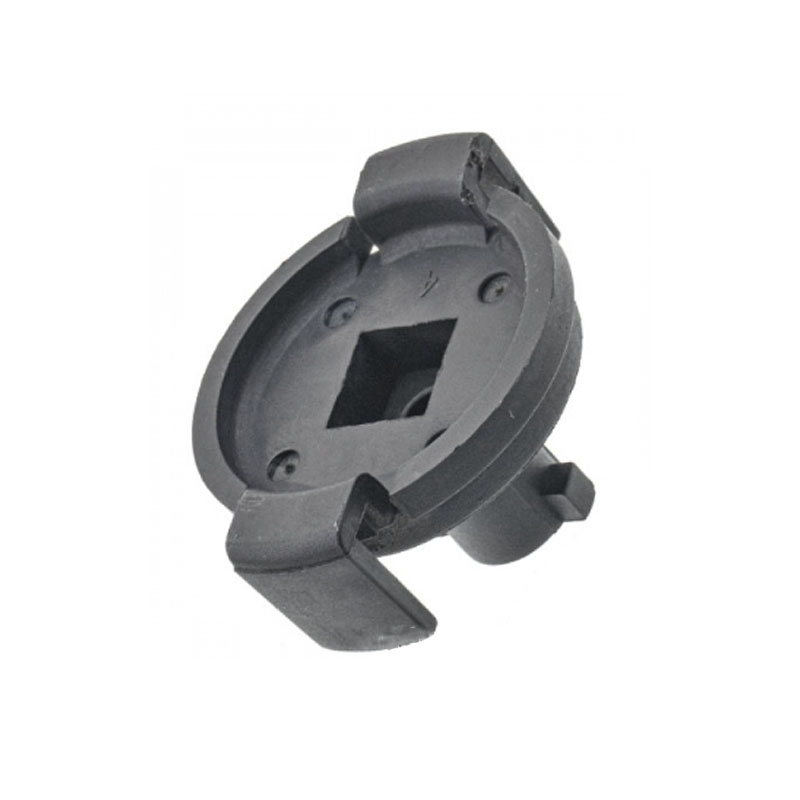Understanding the Importance of Mechanical Oil Seals in Machinery Applications
Understanding Mechanical Oil Seals Their Importance and Applications
Mechanical oil seals, often referred to simply as oil seals, play a crucial role in a variety of machinery and equipment. Their primary function is to retain lubricant and prevent the leakage of oil or other fluids, thereby maintaining the integrity of mechanical systems. These seals are essential in ensuring the smooth operation and longevity of machinery, which is critical in industries ranging from automotive to aerospace.
What is a Mechanical Oil Seal?
A mechanical oil seal is a device that serves as a barrier between stationary and rotating components, sealing the interface and preventing the escape of lubricants or the entry of contaminants. Typically made from materials like rubber, polyurethane, or silicone, oil seals consist of a lip designed to make contact with a shaft while an outer casing provides a secure fit in the housing.
Types of Mechanical Oil Seals
There are several types of mechanical oil seals, each suited for specific applications
1. Rotary Oil Seals Designed for rotating shafts, these seals can accommodate varying shaft diameters and are often found in automotive engines and industrial machinery.
2. Static Oil Seals Unlike rotary seals, static seals are used in applications where components do not move. They are commonly found in hydraulic systems and machinery.
3. Double-lip Oil Seals These seals consist of two sealing lips, providing enhanced protection against leakage and contamination. They are particularly useful in harsh environments.
4. V-Rings Using a simple yet effective design, V-rings are mounted on the shaft and form a seal against a stationary counter surface, ideal for applications where space is limited.
Importance of Mechanical Oil Seals
Mechanical oil seals are indispensable for several reasons
1. Leak Prevention Oil leaks can lead to significant operational issues, including reduced efficiency and costly repairs. Mechanical oil seals effectively minimize leakage, ensuring machinery operates efficiently.
mechanical oil seal

2. Contaminant Protection These seals prevent dirt, dust, and other contaminants from entering the lubrication system, which is vital for maintaining the cleanliness and functionality of machinery.
3. Extended Equipment Life By preventing contamination and leakage, mechanical oil seals help extend the lifespan of equipment, ultimately leading to lower maintenance costs and increased productivity.
4. Operational Efficiency With effective seals in place, machinery can operate at optimal levels, leading to better performance and energy efficiency.
Applications in Various Industries
Mechanical oil seals are utilized across a wide array of industries, including
- Automotive In vehicles, oil seals are critical for engines, transmissions, and differentials. They ensure that lubricants stay contained, preventing wear on moving parts and enhancing overall reliability.
- Industrial Machinery In factories, oil seals are found in various machines, including pumps, compressors, and gears, helping maintain smooth operation and preventing downtime.
- Aerospace The aerospace industry relies on high-performance oil seals to withstand extreme conditions and ensure the reliability of aircraft systems.
- Agriculture In agricultural machinery, oil seals prevent leaks in engines and hydraulic systems, crucial for maintaining productivity in farming operations.
Installation and Maintenance
Proper installation and maintenance of mechanical oil seals are vital for their performance. When installing an oil seal, it is essential to ensure that the sealing surface is clean and free from debris to achieve a proper seal. Additionally, regular inspections should be conducted to identify any signs of wear or damage, allowing for timely replacements before leaks occur.
Conclusion
Mechanical oil seals are vital components in numerous applications, playing an essential role in sealing mechanisms against fluid leakage and contaminant ingress. Their importance spans across various industries, highlighting the need for proper selection, installation, and maintenance. As technology advances, the design and materials used for oil seals continue to evolve, promising even greater reliability and performance in the future. By understanding the significance of mechanical oil seals, industries can better appreciate their value in maintaining operational efficiency and equipment longevity.
-
Understanding the Front Main Engine Seal: Purpose, Maintenance, and Installation
News Jul.29,2025
-
Understanding O-Rings and Seal Rings: Types, Applications, and Custom Solutions
News Jul.29,2025
-
Understanding Crankshaft Oil Seals: Rear Seals, Pulley Seals, and Their Role in Engine Integrity
News Jul.29,2025
-
The Importance of Front and Rear Crankshaft Seals in Engine Performance and Oil Management
News Jul.29,2025
-
Crank Oil Seals: Functions, Types, and Cost Considerations in Engine Maintenance
News Jul.29,2025
-
A Comprehensive Guide to O-Rings and Seals: Types, Materials, and Global Applications
News Jul.29,2025
-
Mastering Diesel and Performance Engine Maintenance: A Guide to Critical Oil Gaskets
News Jul.28,2025
Products categories















